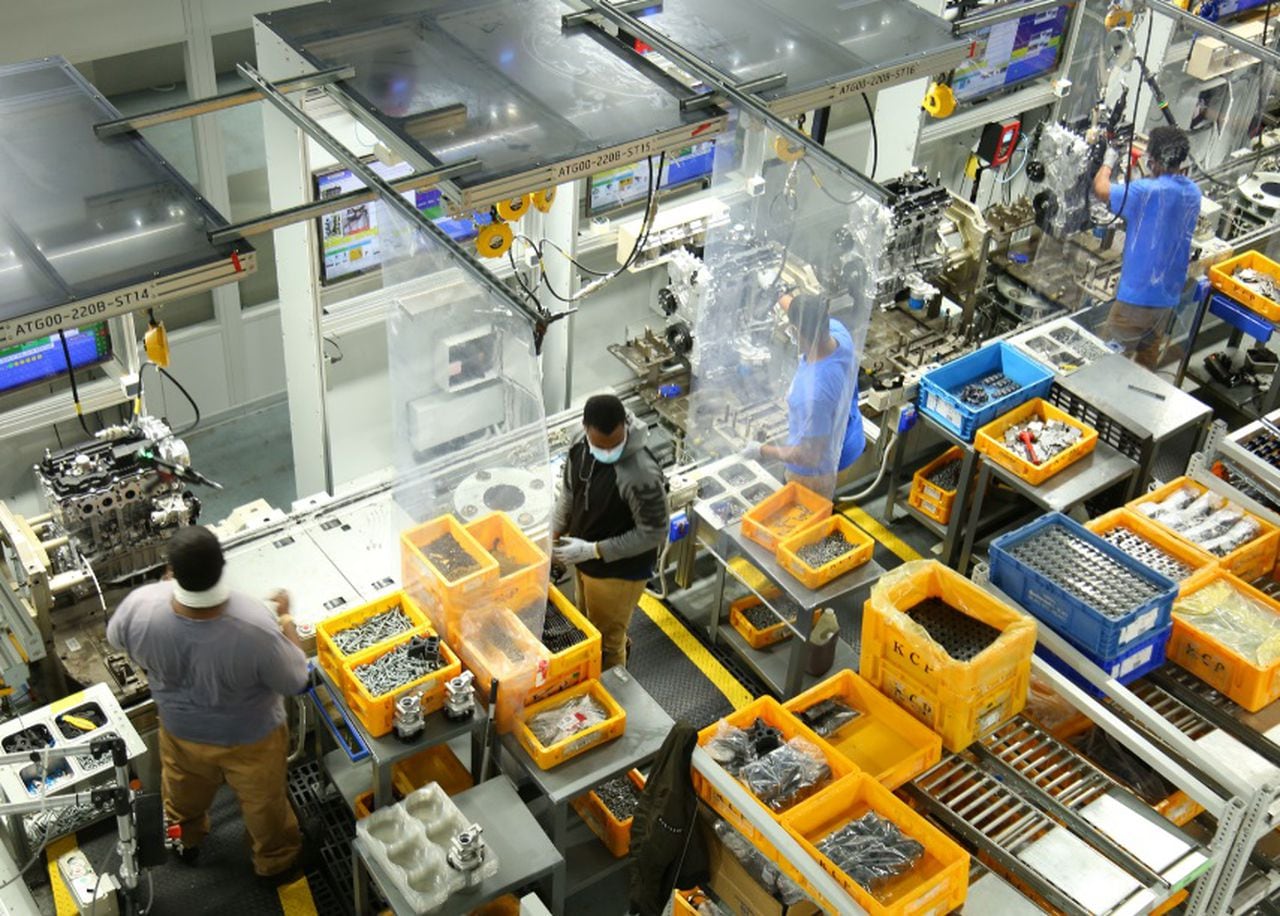More than 30 percent of Montgomery Hyundai workers have joined union, UAW says
The United Auto Workers Thursday said more than 30 percent of the workers at Hyundai’s Montgomery auto plant have signed union cards.
The announcement comes weeks after a similar announcement at Mercedes-Benz’s Tuscaloosa County plant in Vance, and signals historic gains in the union’s long-time fight to unionize Alabama’s auto plants.
In an accompanying video, Hyundai workers draw on the history of Montgomery as a civil rights landmark and shared their own stories of why they were drawn to the union.
Drena Smith, a 19-year employee, said she has had rotator cuff surgery on both shoulders and carpal tunnel surgery in one hand.
“I’m getting close to retirement and the company has literally broken me down,” Smith said through the union. “We need compensation for that when we retire. Not just a cake and a car discount for a car we can’t afford to buy because we won’t have any income. We need a real retirement; we need to win our union.”
Dewayne Naylor, a Body Shop Quality Control worker, said his oldest son also works at the plant. He said most of his raises have been 12 or 13 cents an hour over the last 10 years.
“The price of their cars, they go up every year. But my pay don’t. If we don’t get the union here, our pay will never keep up,” he said.
Ronald Terry, a team member in general assembly, said he was a temporary worker for three years making $11.03 an hour as late as 2017.
“They kept saying, just wait a little longer, you’ll make it to full time. I finally did, but the pay is still mediocre,” Terry said. “With the union, we can bring our pay and benefits up to a higher standard. That’s how you motivate your workers. It’s not just good for us, it’s good for the product we produce.”
Quichelle Liggins, a quality inspector, said a group leader told her, “this job is more important than your family.” That was the moment, Liggins said, when she understood a union was needed.
“My youngest son had a basketball game and I scheduled a half day of vacation time,” Liggins said.
“Someone was supposed to come to the line to relieve me, but no one came. Finally, I clocked out and I missed the first quarter of his game. They still wanted to write me up for job abandonment. I had to go in front of team relations and I explained what happened, that I was legit in having this personal day.”
According to the UAW, 10,000 non-union autoworkers have signed union cards in recent months, at Volkswagen in Chattanooga, and Mercedes in Vance. The numbers are a sharp contrast to past unsuccessful unionization efforts in the Deep South, and in Alabama, a right-to-work state.
The campaign has not gone unnoticed by state and business officials.
Last month, Gov. Kay Ivey said the union push by the UAW means that Alabama’s “model for economic success is under attack.” This week, Alabama’s commerce secretary, Ellen McNair, said the unionization drive “places our state’s main economic driver in the crosshairs.”
The CEO of the Business Council of Alabama CEO Helena Duncan announced a website, Alabama Strong, online advertisements, and a campaign to “provide Alabamians with a full and thorough picture of the economic dangers that unionization presents,” as Duncan stated in an op-ed.
Hyundai’s $1.8 billion automotive plant began production in 2005 and employs about 3,800 people, manufacturing the automaker’s Sonata, Elantra, Santa Fe, Santa Cruz and Tuscon, as well as engines.
Last year, Hyundai Motor America reported a 4% increase in sales year-over-year, and the highest December sales total in company history. It was the 17th month in a row Hyundai has achieved increases in total sales, with all-time total sales monthly records set for its Tucson, Santa Fe and Palisade.
Last year, the UAW filed unfair labor practice claims against several automakers, including Hyundai, for what it said were union busting practices, such as confiscating and destroying pro-union materials in non-work areas during non-work times.
